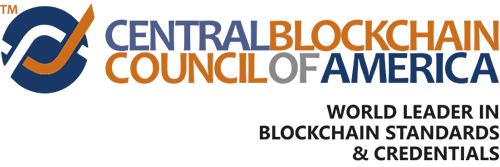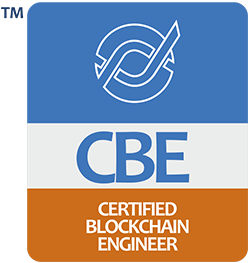Mar 30, 2021
Fishing out the right blockchain protocol is a crucial part of reaping the real benefits of the technology. Learn about the commonly used blockchain protocols and their industry uses here to build blockchain applications and tools.
A protocol is a program, rules, or procedures that define the data transfer methodology between different computer programs. A blockchain protocol or enterprise blockchain protocol is a generic term used for consensus systems implemented to validate transactions within a blockchain network.
Take a look at the characteristic features and working principles behind the blockchain protocol.
A blockchain protocol-
- Defines the way to structure the data
- Operates on a P2P network of computers
- Possesses different design for differing objectives
- Ensures efficient and reliable data transfer
- Establishes secure transfer by preventing malicious users
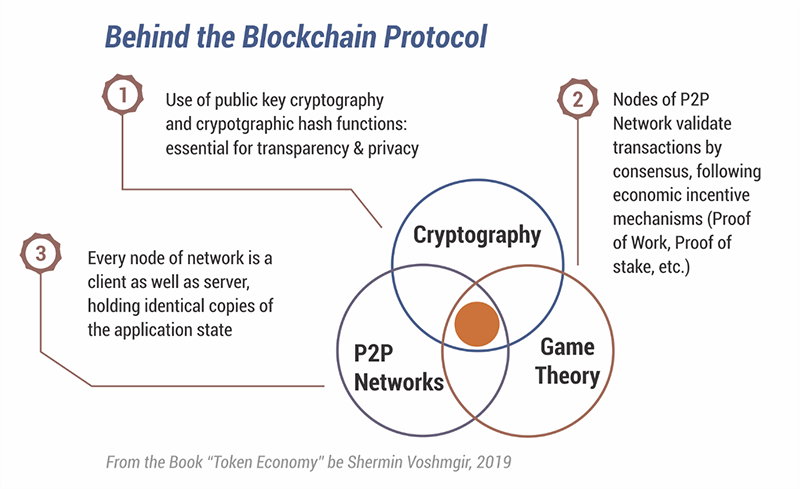
With this small introduction, let’s understand the 3 major blockchain protocols used across the industries.
1. Hyperledger
Hyperledger is a global enterprise blockchain project that provides frameworks, standards, guidelines, and tools to build open-source blockchains.
Hyperledger’s architecture is modular and hence accommodates diverse use cases. It leverages the plug-and-play elements such as permissioned services, privacy, and consensus. Hyperledger improves efficiency, performance, and transactions of business processes.
Hyperledger uses these key business components:
Consensus layer creates an agreement on the order and confirms the correctness of transactions constituting a block.
Smart contract layer processes the transaction requests and authorizes valid transactions only.
Communication layer takes care of P2P message transport.
Identity management services maintain and validate the identities of users and systems.
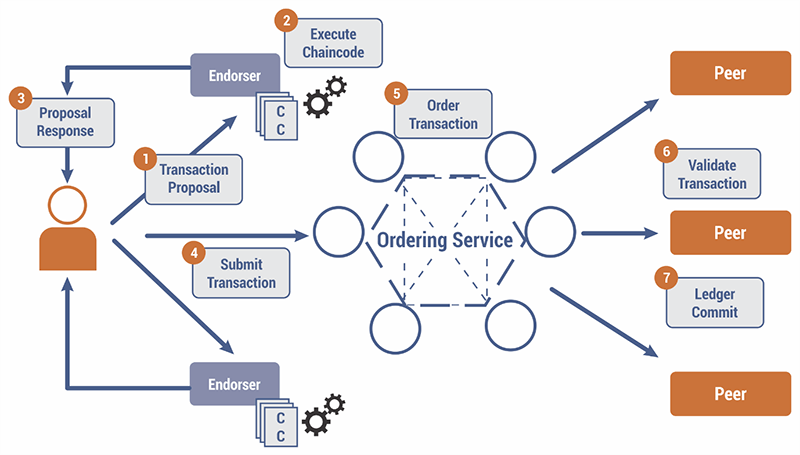
Hyperledger Transaction Flow
Source: ResearchGate
Uses of Hyperledger:
Digital payments: The design facilitates any payer from across the world to pay any payee with minimal costs and at a faster rate. Moreover, they need not set up any accounts on any of the global payment services.
Diamond tracing: Miners, separators, exporters, and retailers together form a consortium and use Hyperledger to maintain transparency in the trade.
B2B contracts: The network-within-network architecture of Hyperledger ensures confidentiality about the sensitive information of B2B contracts within the group members.
2. Ripple consensus network
Ripple acts as a digital currency and a digital payment network. Being an open-source payment protocol, Ripple enables instant and secure transactions across the globe at scale. The protocol supports tokens of cryptocurrency, fiat currency, commodity, or other value units (mobile minutes, frequent flier miles).
Ripple is an absolute-finality consensus protocol.
The consensus process involves:
Validating nodes send transactions set as a proposal to other trusted nodes-UNL
Unique Node List (UNL): When UNL receives the proposal, the nodes check the transaction. The transaction gets one vote in the case the transaction is the same as its local transaction set.
After 50% of the votes, the transaction enters the next round. The transactions with 80% of the votes will get recorded in the distributed ledger.
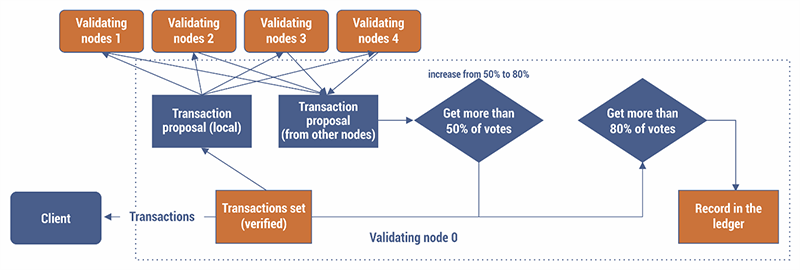
Process of Ripple
Source: ScienceDirect
Uses of Ripple:
Ripple facilitates quick and direct money transfer in fiat currencies without wait time or transaction fees.
3. Corda
Corda, a distributed ledger technology system is custom-designed for enterprise use by R3.
Corda comes with unique designs such as not having a globally shared ledger and support for private transactions. It is built on a strong identity model, where every identity gets approved by an x.509 certificate through a validated trust chain.
Corda transactions are different. It involves:
Model: It is based on the UTXO model
Transaction flow: Corda transactions involve the collection of multiple signatures to authorize the transfer. The transactions are natively built on the concept of collection and coordination, using ‘flows.’
Communication: The communication occurs in the context of these flows which is point-to-point. The tasks are automated through built-in flows.

Corda workflow /Source: Corda key concept-Flows
Uses of Corda:
Finance and insurance: The major networks built on Corda include B3i: reinsurance network, and Marco Polo: global trade finance network.
Healthcare: Corda blockchain increases patient satisfaction through easy patient profile validation between systems, and insurance claims management.
Construction: Corda enables project participants to gain a consistent and shared view of the project’s details. Also, the need-to-know distribution prevents information sharing with external parties.
Blockchain protocols are maturing every day and becoming unique to industry use cases. However, their incorporation is a complex process and needs expertise. As a result, blockchain job offerings are showing a steep growth curve. The blockchain industry is expected to reach 23.3 billion in 2023 (it was 3.9 billion in 2020).
The bottom line is if these industry facts inspire you to carve out a niche in blockchain technology, it is the best time to do it. If you are a beginner or an enthusiast interested to make a career in blockchain, take a look at the different blockchain certifications provided by the CBCA. Equip yourself with industry-level skills and be a contributor to the blockchain world.
